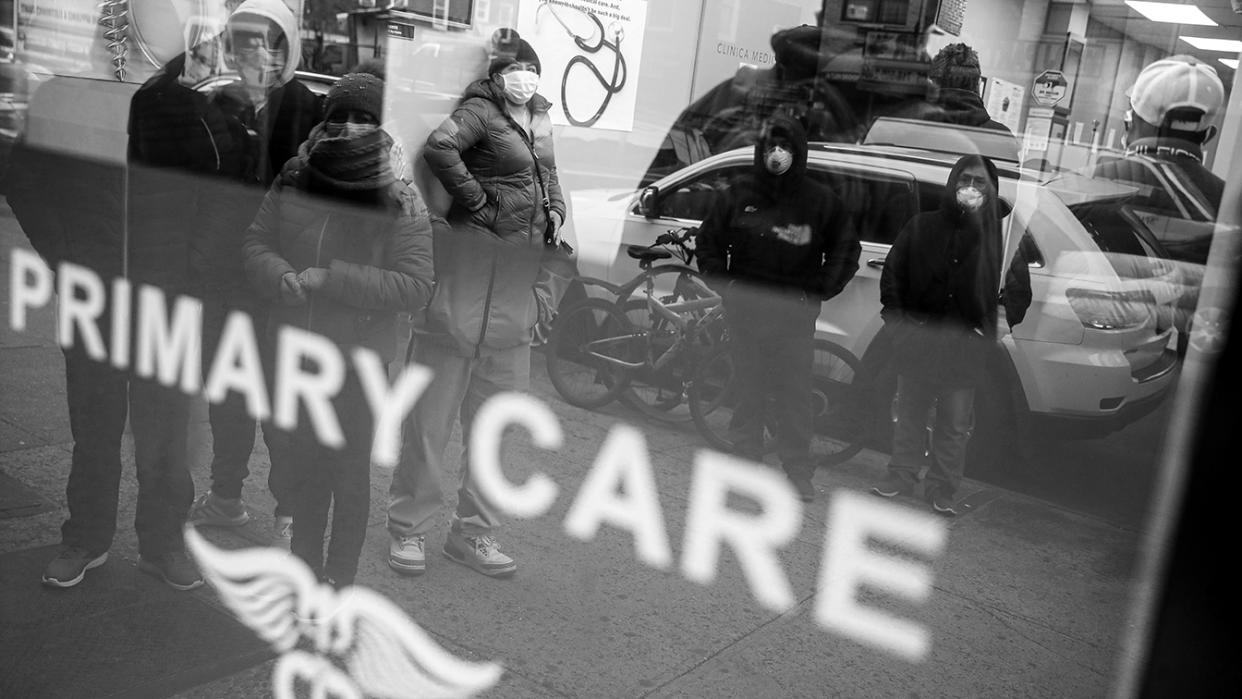Hospitals preparing for life-and-death decisions on who gets ventilators during coronavirus pandemic, medical ethicist says
Many hospitals are putting together triage committees made up of doctors and ethicists who can help individual frontline doctors and nurses make on-the-spot decisions about where a needed ventilator should go, according to a leading medical ethicist.
Most hospitals typically operate at close to full capacity in order to remain profitable, said Jonathan Moreno, a University of Pennsylvania professor of medical ethics and health policy. As a result, many hospitals lack key supplies, particularly ventilators. So now, frontline medical staff are having to decide who lives and who dies, an unprecedented experience for most modern American doctors, and one that Moreno said has led to the creation of triage committees in many hospitals.
“You don’t want to put individual doctors in this position ... because of the prospect of what people call ‘moral injury’ — that is to say, the sense that they will have, potentially for the rest of their lives, that they did everything they could, they made the right decision, and yet they feel this tremendous burden that they know they let people die,” Moreno said during an interview on the “Skullduggery” podcast. “You really want to try to protect the caregivers from that problem of moral injury.”
Other than organ donation, modern American medicine does not ask doctors to decide who lives and who dies, said Moreno, who is also a senior adviser for the Presidential Commission for the Study of Bioethical Issues and the co-author, along with Penn president Amy Gutmann, of “Everybody Wants to Go to Heaven but Nobody Wants to Die: Bioethics and the Transformation of Healthcare in America.”
Moreno’s comments come just as a National Academies of Sciences committee has issued new guidelines for dealing with patient care amid the COVID-19 pandemic, which could lead to decisions on which patients get access to lifesaving ventilators.
“What I think is so disturbing in this instance is that there were apparently failures to prepare for this surge and the need of ventilators in the last couple of months,” Moreno said. “To try to relieve the moral injury of the caregivers, groups of people will get together and try to give some guidance and kind of spread out the moral burden of these decisions.”
America’s failure to do even basic planning to prepare for the coronavirus is a public health disaster that will also discredit the U.S. as a health leader globally for years to come, according to Moreno. As far back as the 1950s, when the United States sent polio vaccines to communist Hungary, America has been regarded as a beacon for sound public health policy and cutting-edge clinical medicine, he said.
“We were the leader in public health for the world until this, and I’m not so sure that people will look to us now,” Moreno said.

Download or subscribe on iTunes: “Skullduggery” from Yahoo News
Medical experts have long warned that the relatively low number of Americans who suffered from H1N1 and SARS in previous years should be considered “lucky breaks,” Moreno said.
“We got kind of fat and sassy in the last 40 years,” Moreno said. “We have been so comfortable in the post-World War II era with so much travel and so much human contact and exchange and we haven’t worried enough, of course, about what the warming of the oceans is going to do to create more danger.”
Worse, more viruses are coming, Moreno warned. While the U.S. will have a chance to earn its reputation back, he said, Americans should expect to more frequently encounter new and threatening viruses — and the medical system should prepare for that reality.
There are 6,500 to 7,000 species of virus known to be in existence, Moreno said. While the coronavirus-type threats were previously thought of as once-in-a-century events, Moreno said that climate change, warmer oceans and increasing global travel have changed that metric for the worse.
“We have been so lucky,” Moreno warned “Skullduggery” hosts Michael Isikoff and Daniel Klaidman. “The global north in particular, and Europe, and the United States and Canada and the English-speaking countries in particular: We have been so fortunate. So, now we can’t be.”
_____
Click here for the latest coronavirus news and updates. According to experts, people over 60 and those who are immunocompromised continue to be the most at risk. If you have questions, please reference the CDC and WHO’s resource guides.
Read more:


